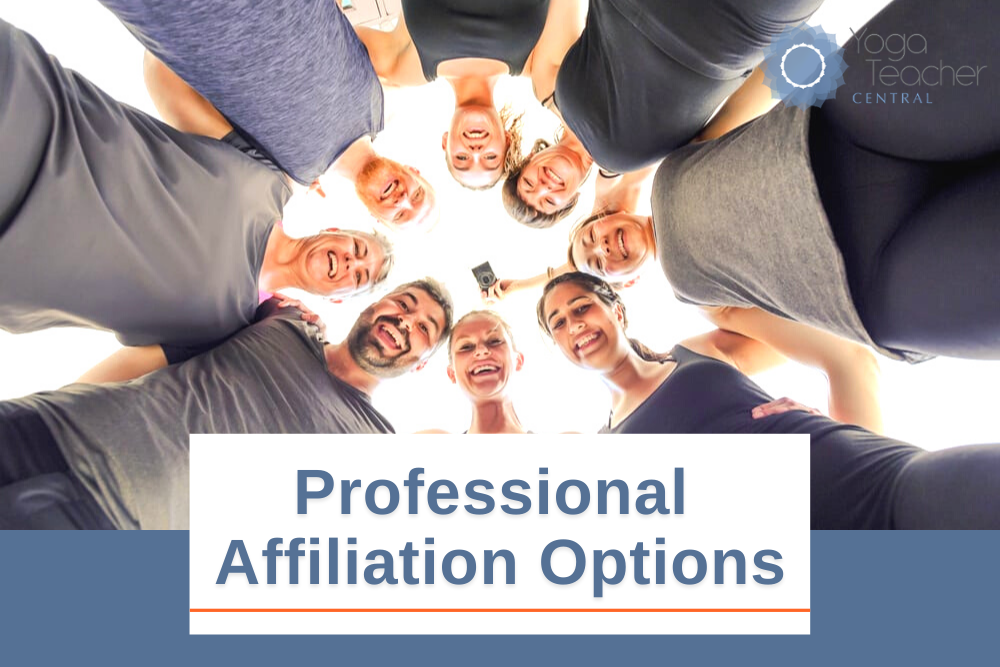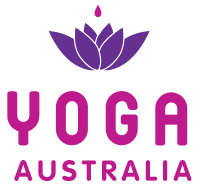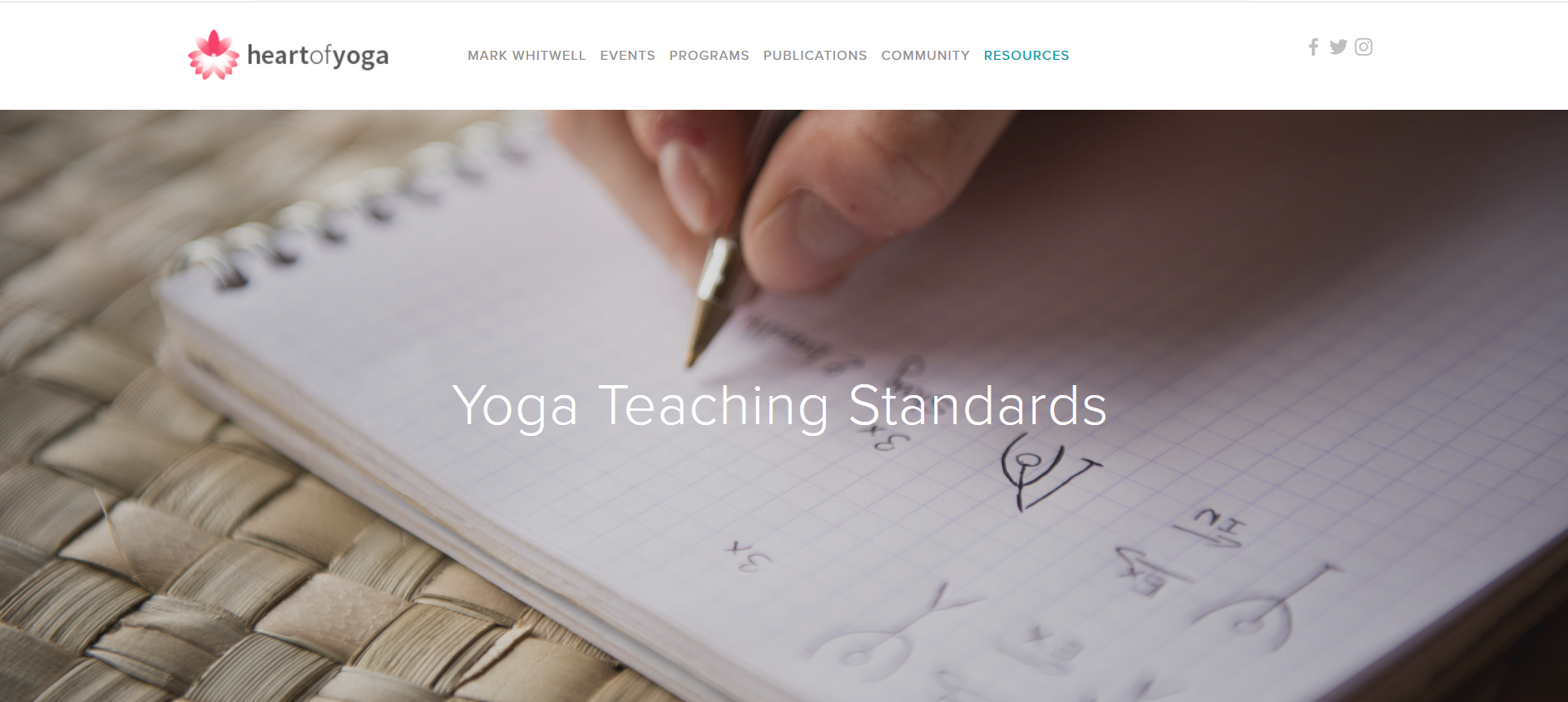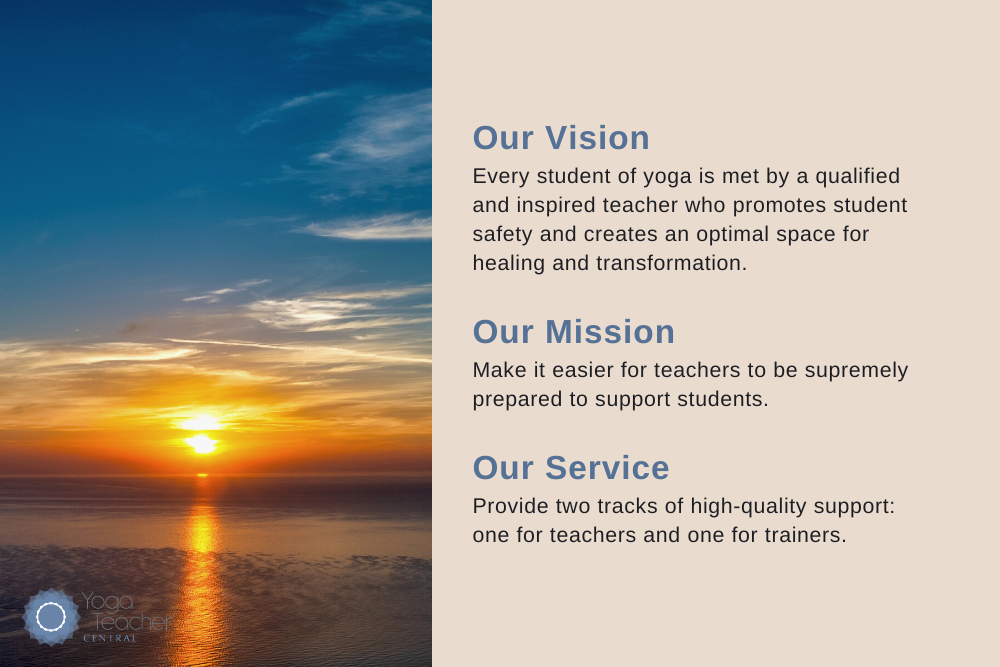

The primary purpose of this page is to provide support for teachers and trainers who are exploring their options related to the subjects of recognition, certification and the specification and upholding of standards.
We’re trying to make the self-governance efforts in our field more transparent in an effort to highlight ways we can promote best practices and increase standards and accountability in yoga teaching and training.
In 2013, J. Brown wrote:
Yoga Would Benefit by a Trade Organization that Promotes Best Practices by Providing Resources
As it stands, training programs are already only being held to the standards they set for themselves. Unfortunately, those standards are too often being tainted by the enabling emphasis on hours and the lucrativeness of yoga teacher training. A sensible way forward might be to have a trade organization that promotes best practices by providing resources, education and incentives for registrants to conduct themselves with greater honesty and integrity. Sounds awful rosy, I know, but it’s not that crazy. Maybe we can stop kidding ourselves about hours and identify other ways to encourage more personal accountability. – J. Brown link
Founded in 2012, Yoga Teacher Central is such an organization, and here in the Free Resources, one of the subjects you can research is the subject of Yoga Alliance and certification in general.

In both my 200 and 300 hour trainings, and in a Level 1 Prenatal training, the course leaders expressed that they only register with Yoga Alliance for people doing online searches for programs to take. I’ll admit I liked taking part in programs that were YA-backed because it felt like a level of legitimacy and comfort to see they’ve got that stamp. However, being in the teaching field and paying for YA membership yearly, I now realize they offer me… nothing really? I’ve never gotten a client from being part of the YA community and none of my private clients have ever asked about my YA status, so I don’t plan to renew for the coming cycle. – Kala MacDonald link, Yoga to Cope link
If your objective in registering with Yoga Alliance has been to prove the legitimacy of you or your organization, there are two primary ways to think about your choices: 1) what you can do on your own, and 2) the option to associate with third-party organizations.
Some options include:

Here we provide an alphabetized list of organizations that offer yoga teacher or trainer recognition. (If you know of more, please email us.)
Below the list is a summary statement and link to the organization’s website.
The Association of Yoga Professionals
The AYP seeks to offer a higher standard and greater accountability among teachers of yoga, as well as to help connect students of yoga with those teachers most qualified to serve their needs. As a service-based, 501(c)(6) non-profit organization, The AYP is committed to operating in accordance with yogic principles.
The Association of Yoga Professionals (AYP)
Black Yoga Teachers Alliance
BYTA is a collective of yoga teachers who share the peace and power of yoga to inspire conscious living. BYTA supports the continuing educational and professional development of black yoga teachers.
Black Yoga Teachers Alliance (BYTA)
Christian Yoga Association
Membership is open to any level of Christ centered yoga practitioner, yoga teacher, yoga therapist, and any other practitioner who incorporates Christian yoga into their healthcare, therapy, holistic, wellness or research program. We are on a mission to bridge Christian practitioners on a global and local level to provide strong, supportive communities.
International Association of Yoga Therapists
IAYT supports research and education in yoga and serves as a professional organization for yoga teachers and yoga therapists worldwide. Our mission is to establish yoga as a recognized and respected therapy. Founded in 1989, IAYT has consistently championed yoga as a healing art and science.
International Association of Yoga Therapists (IAYT)
National Association of Certified Yoga Teachers
The National Association of Certified Yoga Teachers (NACYT) is a nonprofit that offers a free national registry for certified yoga teachers of all traditions. In addition, NACYT is a nationally recognized not-for-profit certifying body for yoga teacher certification courses at both the 200 and 500 hour level. The purpose of NACYT is to bring a semblance of simplicity to the national yoga community. Together, let’s form a simple national registry without unnecessary complications, restrictions and regulations. – Lex Gillan, Founding President
National Association of Certified Yoga Teachers (NACYT)s
World Yoga Federation
World Yoga Federation is an organisation that works towards equal opportunity and international recognition of all yoga practitioners, teachers and organisations from all over the world. World Yoga Federation provides International Certification, recognition, registration and an International Platform to Yoga Organizations, Yoga Federations, Yoga Institutes, Yoga Studios and Yoga Teachers worldwide.
World Yoga Federation United States
Yoga Alliance
Yoga Alliance fosters and supports the high quality, safe, accessible, and equitable teaching of yoga.
Yoga Alliance Professionals
We are not and have never been affiliated with Yoga Alliance USA or any other external body. We believe Yoga Alliance USA plays a significant role in the reduction of standards and is the main reason we don’t want the public to be confused with us and YA USA. Since inception, we have always asked that the teacher has a minimum of 8 years and 4000 hours of teaching experience to run a Training Course. Additionally, we require the teacher to teach 70% of the course. In short, our standards are more than four times greater than YA USA. Our first step in moving away from any confusion was to change the name to Yoga Alliance Professionals. Our long-term approach is to drop the name Alliance, but this will take time with 8000+ live members.
Yoga Association of Greater Detroit
Yoga Association of Greater Detroit is a multi-discipline resource organization for Detroit-area yoga instructors, bringing them together to share their knowledge and expertise.
Yoga Association of Greater Detroit
Yoga Australia
Yoga Australia is a voluntary, not-for-profit association, incorporated in 1999 (originally known as the Yoga Teachers Association). It was originally founded by a group of independent yoga teachers who recognised the need to bring yoga teachers together from all different traditions, styles and backgrounds, to provide mutual support and professional recognition of yoga in Australia. Today Yoga Australia is recognised as the peak body for Yoga in Australia. We strive to support our fellow yogis and ensure the sustainability and longevity of our industry in this country and around the globe.
We have worked with experienced trainers who have also worked with Yoga Australia and who have vouched for the effectiveness and support of the Yoga Australia model. In addition, what Yoga Australia has published makes it clear that their model is completely different from Yoga Alliance USA. Therefore, we have published a detailed summary and comparison below, most of which was compiled by an experienced trainer in Australia.
Yoga Teacher Central
Yoga Teacher Central offers Minimum Knowledge Standards for yoga teachers to: 1) Promote and support widespread adoption of training models that adequately prepare yoga teaching professional, and 2) Make it easy for teachers to become aware of gaps in their knowledge, and to efficiently bolster their education in foundational knowledge.
Yoga Teacher Central Standards & Self-Assessment Hub
Yoga Teachers Fellowship
The Yoga Teachers Fellowship, an autonomous non-profit organisation (No 029 725 NPO), promotes the principles of yoga and represents the interests of yoga teachers in South Africa. It is inclusive and respectful of all individual teaching styles and is committed to supporting conscious harmony and peace.
As a Community forum it offers a Register of qualified Yoga Teachers and Teachers in training; a listing of Yoga schools and studios; an international and national calendar of events, retreats and workshops; an ongoing skills upgrade resource with informative articles and inspiration, a communication service for all whose passion is YOGA, uniting students, teachers in training and qualified teachers.

The following research and review is provided by teacher trainer and Yoga Alternatives Board member, Sarcha Thurston of Yoga Hub Perth.
Here are a few particularly powerful excerpts from the summary below.
The process and differentiation summaries below are verifiable by reviewing the Yoga Australia and Yoga Alliance websites. In addition, Thurston has first-hand experience with the training school registration process of both organizations. (See more: Teacher & Trainer Reports About Yoga Alliance.)
For example, one of the yoga teachers that works for Thurston and Yoga Hub Perth has the following qualifications:
In other words Yoga Australia is not trying to be a closed circle (monopoly). I think this is important as I was able to use university study in neuroscience, anatomy and Sanskrit language to count toward my 1,000 hours. Obviously, university study is not going to be registered with a yoga industry body but the study was highly relevant to my teaching and was superior to many of the registered trainings I have undertaken. – Sarcha Thurston

Heart of Yoga has proposed a set of teaching standards for widespread adoption.
Please read and consider your perspective on these standards. Perhaps you’ll agree with them wholeheartedly and want to implement them and spread them. Perhaps you’ll want to use them as a baseline and enact or suggest additions or changes. Perhaps you want to get involved with others engaged in such efforts.
We have copied each of the standards in the proposal and added support resources: Teaching Standards Proposal.
It is our intention that the education standards outlined here will be adopted by all sincere Yoga teachers and institutions. There is no doubt that actual Yoga is extremely helpful to our lives. But it must include the principles of breath, bandha, etc that actually make it Yoga. There must be an education to do this. The attempt to create safety standards without understanding the systemic flaws is fruitless, and the hidden hierarchy of the teacher as the ‘knower’ and the student as the one trying to ‘know’, must be eliminated for Yoga to start. When the principles of Yoga, such as were brought through by Tirumalai Krishnamacharya, are taken on, each person’s Yoga becomes entirely their own, powerful, efficient, and safe. Krishnamacharya was the origin point of so much of modern Yoga, but his teaching that Yoga must be adapted to the individual, not the individual to the Yoga is hardly available. When Yoga is adapted to individual, it becomes what it always was, each person’s direct intimacy with life. In this relationship, healing occurs in every way. May we get the job done together, and bring an actual yoga education to the world. – HeartofYoga.com link

Yoga Teacher Central offers specific Minimum Knowledge Standards for yoga teachers to:
The techniques that teachers use in their growth and evolution fall into two broad categories:
Here we use “practice” to mean all those things that you engage in with the mind-body in real time, including not only your personal practice (including self-study and reflection) but also practice teaching and receiving coaching and mentoring.
Both practice and knowledge are critical to teaching effectiveness.
The primary reason for distinguishing knowledge acquisition from practice is this:
Practice is critical to personal evolution, which happens in organic and non-linear ways. Knowledge, however, is a component of teaching that can be methodically learned at a pace that you define.
Here we specify knowledge standards to make it easier for trainers to adequately prepare trainees and for teachers to identify knowledge gaps and fill them.
In case you’re wondering about the backstory… In 2019, we announced the formation of an Alternatives to Yoga Alliance Board. In less than a month, 39 trainers came forward to share their knowledge and time.
In response to requests from trainers, Yoga Teacher Central launched an Authorized Trainers program in 2021 along with YTC Teacher recognition and certification opportunities.
